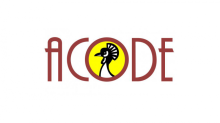Resource information
Well before the effective ending of the protracted Lord’s Resistance Army (LRA)
insurgency in northern Uganda in July 2006, and at a time when the entire rural
population was displaced into camps, concerns had emerged around land, in particular
in the Acholi sub-region, where the war had been most intense and longest lasting
(Adoko & Levine 2004). Through forced displacement, almost all rural Acholi
families has been prevented from occupying their land for many years, years in which
numbers had grown substantially but in which social structures had been undermined,
and elders able to transmit knowledge and understanding about customary land across
generations had died.
The predatory attitude of government, military and Acholi elites towards Acholi land
had also become apparent through a number of dubious land acquisitions which had
taken place in spite of the on-going war. Also, the government had signalled its
enthusiasm for large scale commercial sugar cane farming in the region, triggering a
confrontation with Acholi political leaders (Okello-Okello 2007).



